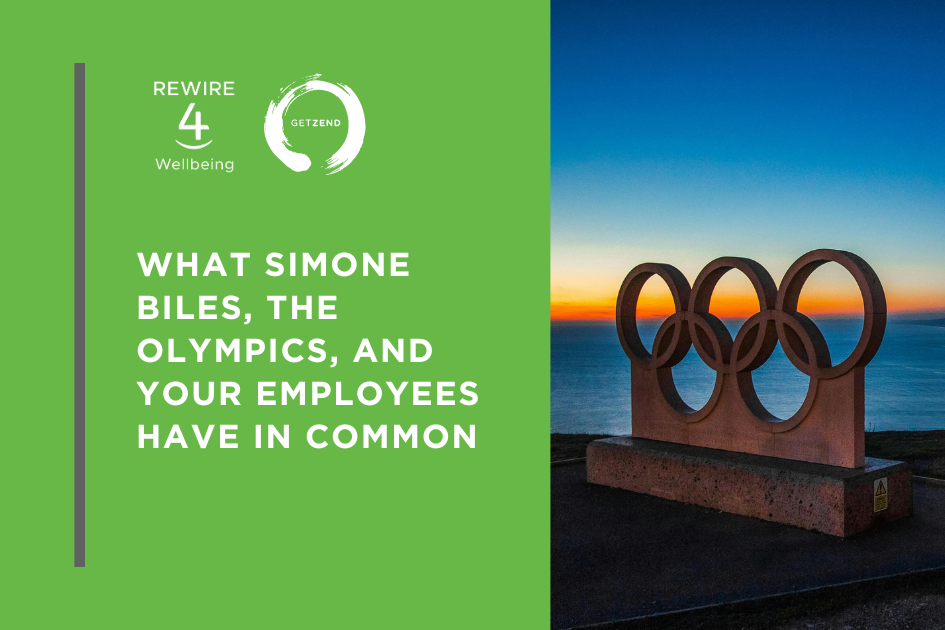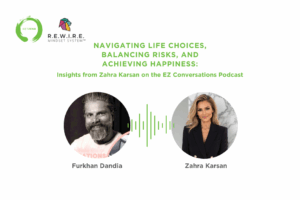In 2021, the world watched as Simone Biles, arguably the greatest gymnast of all time, made headlines—not just for her mind-blowing talent but for her decision to step back from several Olympic events to prioritize her mental health.
This was a powerful moment that resonated far beyond the world of sports, sparking important conversations about mental health and burnout. Biles’ courage in prioritizing herself over the expectations of millions broadcast a clear message: tending to your mental health is not a luxury but a necessity.
For those of us holding down an office job or managing a team of employees, the lessons from Biles’ journey might feel familiar: if the pursuit of greatness comes at the cost of mental health, the victory is hollow.
And this holds just as true in the boardroom as it does on the balance beam.
Corporate leaders need to recognize that prioritizing employee mental health isn’t just the right thing to do—it’s essential for sustaining a thriving, successful business.
The Cost of Ignoring Mental Health
In the high-stakes world of competitive sports, the pressure to perform can be all-consuming. Simone Biles, like many elite athletes, faced relentless expectations to deliver perfection.
However, her decision to step back highlighted a truth often overlooked in the workplace: without an emphasis on mental well-being, even the most talented individuals can struggle to perform at the top of their game.
This truth is supported by data. According to the American Institute of Stress, workplace stress costs U.S. businesses more than $300 billion annually due to absenteeism, turnover, and decreased productivity.
Mental health issues, if ignored, can lead to burnout, disengagement, and ultimately, a loss of valuable talent.
Bottom line? It’s not just an individual problem; it’s a business problem.
Prioritizing Mental Health is a Competitive Advantage
Simone Biles’ return to competition after taking the time she needed showed the world that prioritizing mental health doesn’t mean “taking the easy way out” or sacrificing success.
In fact, it can be a strategic advantage.
When employees feel supported in their mental health, they are more likely to be engaged, productive, and loyal.
Creating a culture that prioritizes mental well-being doesn’t just benefit employees—it benefits the entire organization. Companies that lead the way in workplace wellness programs often see reduced turnover rates, increased innovation, and higher levels of employee satisfaction.
And when employees know that their company genuinely cares about their well-being, they’re more likely to go above and beyond in their roles.
Practical Steps to Support Employee Mental Health
Supporting employee mental health is more than just offering occasional office perks or wellness days. It requires a thoughtful, integrated approach that addresses both the mental and emotional needs of employees.
- Normalize Conversations About Mental Health | Just like Simone Biles sparked a global conversation about mental health in sports, leaders in corporate America should strive to create an office environment where mental health can be openly discussed. This can happen with regular employee check-ins, leadership-led mental health training, and creating honest spaces where employees feel safe to express their struggles and worries.
- Offer Comprehensive Wellness Programs | Mental health support can, and should, go beyond traditional health insurance. Consider offering access to a workplace wellness program like REWIRE 4 Wellbeing, a subscription based program that delivers 6 weeks of upfront training to cause an immediate shift in stress reduction and increased productivity.
- Lead by Example | Just like Biles’ actions inspired countless people to engage in conversations about wellness, leaders who prioritize their own mental health set a powerful example for their teams to do the same. When executives take mental health seriously—by practicing self-care, setting boundaries, and advocating for wellness programs—employees are more likely to follow in their footsteps.
- Encourage Time Off | In high-pressure environments, employees usually feel guilty about taking time off. Encourage your team to use their vacation days and take breaks! This not only prevents burnout but also leads to more energized and creative work when employees return.
Next Steps
Simone Biles’ story reminds us that success without well-being is unsustainable.
The lesson for corporate America is simple: prioritize mental health. Not as a fallback plan, but as a central pillar of your company’s culture.
The question isn’t whether you can afford to prioritize your team’s wellness; it’s whether you can afford not to. Let Biles’ journey be an example of what’s possible, guiding your organization toward a reality where well-being and success go hand in hand.
Looking for a wellness program to help your team jumpstart their mental health journey? REWIRE 4 Wellbeing offers fitness, nutrition, stress management and mental wellness, delivered in a mobile app, with live coaching each week to ensure your workforce is supported throughout their journey back to better physical and mental wellbeing.
Learn more about REWIRE 4 Wellbeing and get started HERE!










